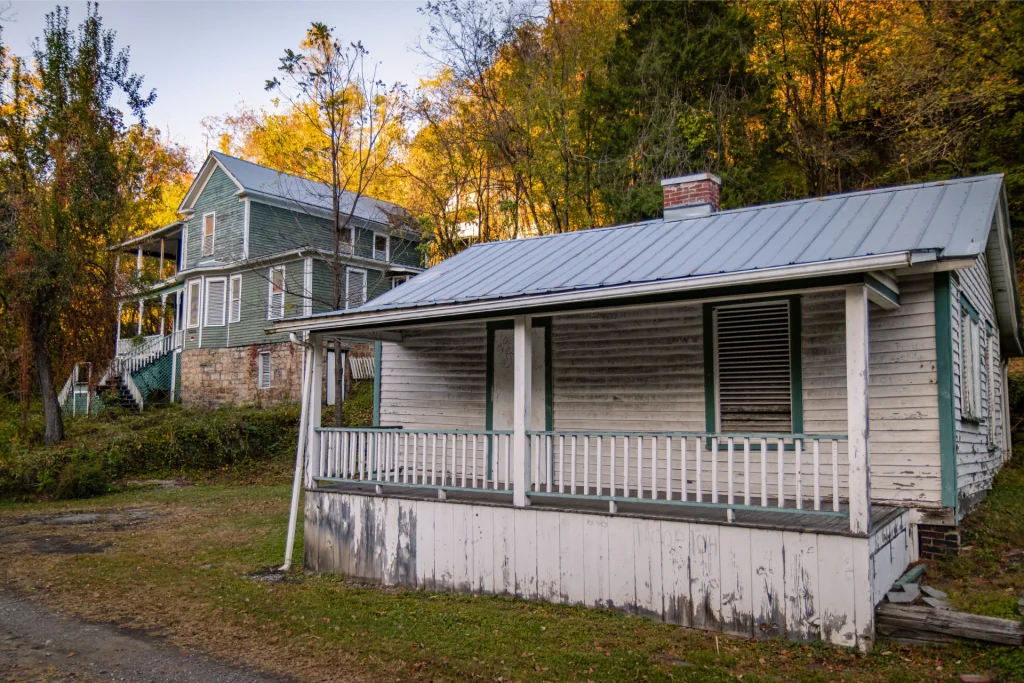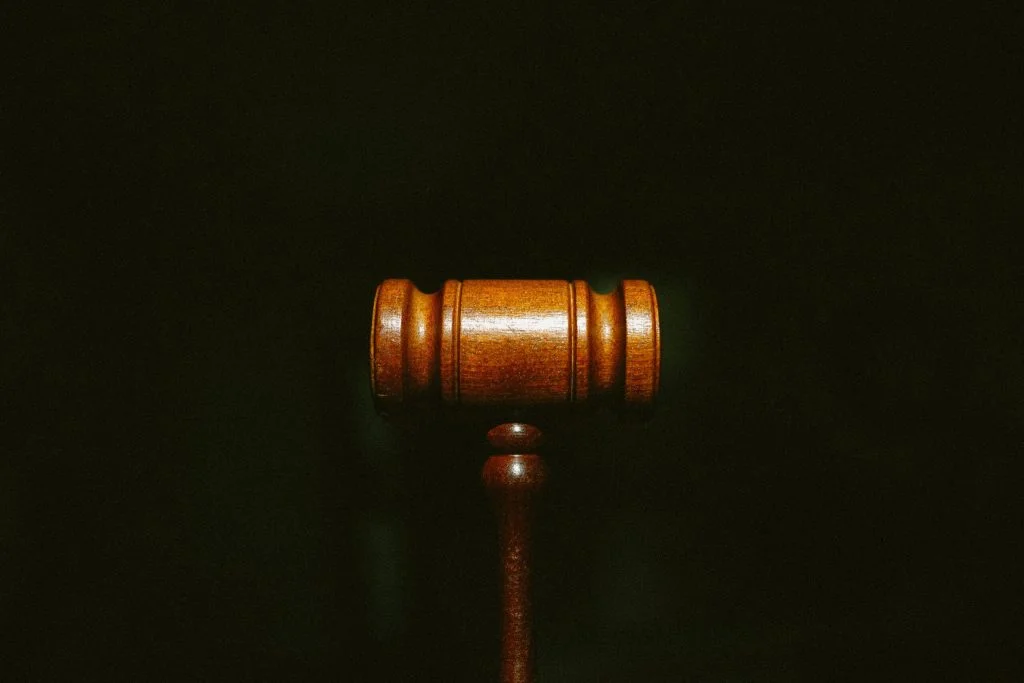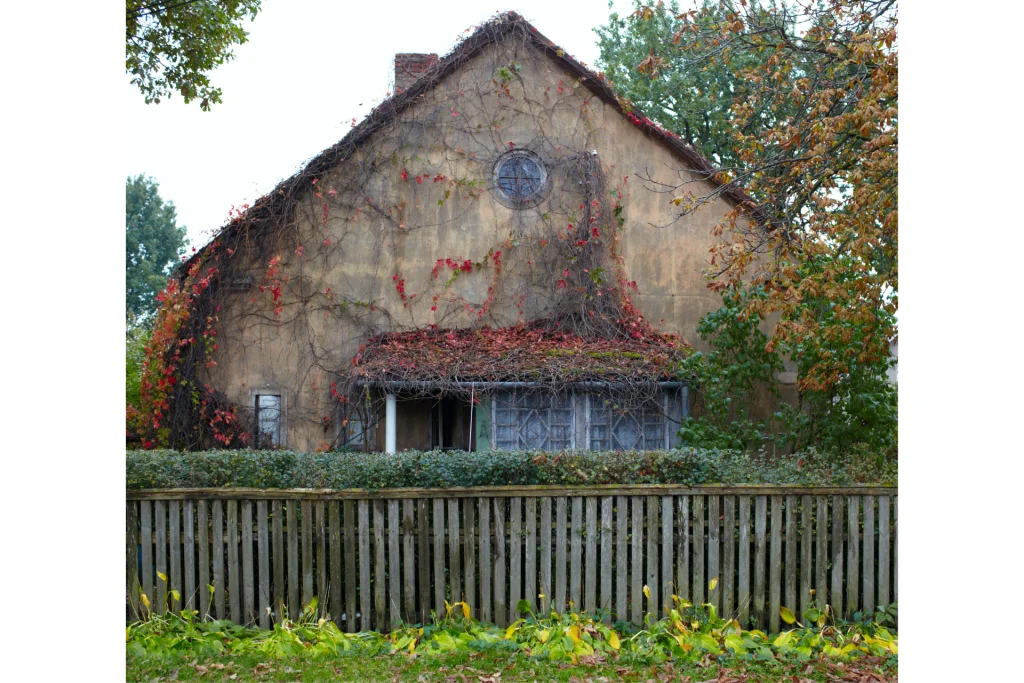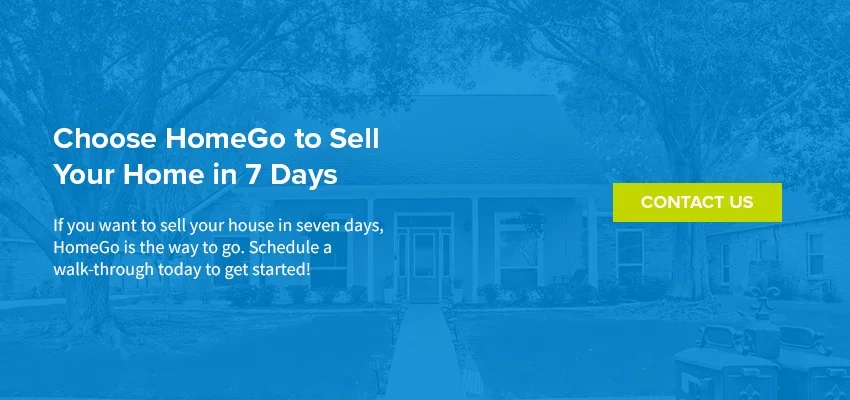The doors are locked, there’s a warning sign from the building authority, and you’re left wondering, “What happens to a condemned house? And, can I sell the property?”
HomeGo has the answers to these questions and more about condemned houses!
What Is a Condemned House?
When a house is deemed unsafe or uninhabitable, it may be subject to condemnation. This is a common occurrence in houses that have been neglected for a long time or when there is substantial structural damage. If a house has been severely damaged due to a natural disaster like a tornado or hurricane, that too can lead to house condemnation, as well.
As soon as the house is condemned, anyone who is living there will have to leave and won’t be able to come back unless the problems that led to the condemnation are fixed.
Additionally, a house that has been abandoned and allowed to decay may be condemned as a result of mold, pest infestations, and other dangers. People’s health and safety can be seriously jeopardized by living in condemned homes. To enter them is frequently risky, and they pose a potential threat to anyone who lives nearby. When these dangers become too great, local governments may condemn homes and issue demolition orders to safeguard their residents.
In most cases, a house can be lifted from the condemned list if the homeowner fixes everything that needs fixing.
If the homeowner refuses to fix the damage or says the house is beyond repair, the government can step in and have the homeowner pay to have the house torn down.
It’s important to know why your property is described as “condemned” and what the rules are when it comes to that. Whether your goal is to sell or renovate your property, these factors are important.

How Does a House Become Condemned?
A house is typically condemned when there are multiple housing code violations of the housing code that have been committed regarding the safety of the building. It’s also possible for a house to become unsafe after being empty for a while.
Having said that, not every property that is left empty is condemned. When a homeowner decides to update their home, an inspector may uncover major code problems down the road.
These can range from not having the proper building permits or they aren’t displayed correctly, to the work not being done up to code, or an inspector might deem it a safety violation.
Properties might be condemned for various additional reasons. Some houses will be condemned if it has unsanitary living conditions. Examples of this could be that the plumbing isn’t working properly or there’s so much clutter that pests start moving in. Additionally, homes can be deemed unlivable if they have black mold or have major structural issues.
Then you have eminent domain.
A local government body can take your house if it’s decided that the street needs to be expanded or there are plans for a new public improvement or building.
Eminent domain may seem unfair, but the owner is compensated. Usually, they’re paid the current market value for the property.
Can You Live in a Condemned House?
It might not sound great to live in a house that has been condemned, but could you do it if you needed to? The answer may be different in each state, but most of the time it is “no.”
For those whose homes have been condemned, the owner or renter will receive a letter telling them that they must either make all the necessary fixes or leave the property. Then there’ll be a sign posted on the building that alerts people that the structure is no longer safe to live in.
As a safety measure against damage from frozen water pipes or poorly managed utilities, a property that has been condemned may be winterized. The local government may turn off gas, electricity, and water lines and fixtures.
Laws notwithstanding, anyone trying to reside in a condemned property will most likely put themselves in danger due to safety concerns. Depending on the house’s state and the need for repairs, it may cave in.
The city might face liability concerns that they would rather avoid. If they don’t comply, they could face severe penalties and fines.
There are, unfortunately, cases of people who refused to leave their doomed homes regardless of the safety risks. In 2015, a Dallas homeowner refused to leave his home after it was condemned.
What Happens to Your Mortgage?
Unfortunately, mortgage payments don’t go away just because your house was condemned. You’re still at the mercy of mortgage lenders and still have the responsibility to repay the debt. Here are some details:
- Continued Payments: Even if the house can’t be lived in anymore, you still have to pay the mortgage and property taxes.
- Talk to Your Lender: It’s very important to let your mortgage company know right away that your home has been condemned. Some lenders might be able to help you work out a plan to stop making payments or change the terms of your loan.
- Insurance Considerations: If you have insurance that covers the reason for condemnation (such as damage from a natural disaster), the insurance payout may be enough to fulfill your mortgage obligation. Make sure you read your insurance policy thoroughly.
- Foreclosure Risk: If the condemned house has a lien on it or is at risk of foreclosure, it’s important to take care of these financial problems right away. Your credit score will go down after a foreclosure, which could make it harder for you to get a mortgage in the future.
- Lender’s Rights: The lender can do whatever it takes to protect its financial interests. For example, they could expect full payment or seek legal action.
- Sale of Property: In the event that you choose to sell the condemned property, you will need to locate a buyer who is prepared to cover the costs of land and any necessary demolition because the mortgage must be paid off with the sale profits. Cash home buyers are experienced with this process and can help.
Legal Considerations and Boundaries
A property that has been condemned may have legal repercussions. Property owners may experience additional stress if the problems listed in a condemnation notice are not resolved in the allotted period of time. The repairs may be required by law, or the offender may be subject to fines or penalties. Also, local government agencies can go to court to get back the money they spent on keeping neighborhoods safe and sound after the condemned homes were taken away. This can make the property owner’s financial and legal situation even more difficult, which emphasizes how crucial it is to promptly and successfully resolve all issues raised.
In most cases, you can’t sell, rent, or live in the property until the problems are fixed. If you are selling a property that has been condemned, you have to tell potential buyers about its past of being condemned. It should be noted that the state of the property and local regulations may restrict selling the property on the real estate market, even after improvements.
If you have more specific or complex legal questions about a property, it can be wise to consult with a real estate attorney to ensure you make the best informed decision.

Can You Sell a Condemned House?
In most cases, a property that has been condemned cannot be sold as-is through the traditional home buying process. Even though the land can still be sold, the buyer will have to pay to have the condemned house torn down and hauled away, reducing its value and making it harder for them to secure a mortgage loan. There’s a slim chance that you’ll find a more typical buyer who has the support of a hard-money or private lenders behind them.
So, yes, although finding traditional buyers can be challenging, it is still possible to sell a condemned home.

What Are Your Selling Options?
Your condemned property represents a unique segment of the housing market. You can meet the right people through real estate agents, but most of the people who will buy your home will be real estate investors or people with cash. With all the expenses and dangers involved with fixing up a condemned house, you should expect bids that are lower than what you might thing the house is worth. While these cash buyers likely see an opportunity, they also understand the risks with undertaking such a project and the potential financial consequences that come with those risks.
Real Estate Investors / Cash Home Buyers
If your condemned property is attractive to real estate investors, they may purchase it. It’s helpful to look into the sales of similar homes in your area recently. Traditional lenders may be reluctant to work with these potential buyers, and they may have trouble finding and securing loans. However, if you lower the sale price, the property may also become more appealing to buyers who know how valuable the land is or how it could be developed in the future.
The easiest and fastest way to sell a condemned property is to find a cash buyer. Usually having the cash on hand, these buyers can acquire houses outright without needing traditional financing, which usually is not accessible for homes that have been condemned. For the property owner, this can speed up the closing process quite a bit. Real estate that’s sold to a cash buyer is occasionally bought “as-is,” meaning that the seller doesn’t have to make any repairs or renovations before the property is sold. When dealing with properties that need extensive repairs, this can be a lifesaver. Here are the steps on selling:
1. Research Local Laws and Regulations
- Check for Required Permits: Selling a condemned property might require specific permits or clearances from local authorities. Ensure you know what’s required and start gathering necessary permits early.
- Consult Local Government Offices: Contact local housing or building departments to get precise information about the steps needed to legally sell a condemned property.
2. Have a Realistic Price in Mind
- Get Professional Appraisals: Since you can’t just look up condemned houses that have sold in your neighborhood on Zillow, it can be helpful to talk with real estate professionals who have experience with distressed properties to get an accurate valuation. A formal appraisal could be worth the cost if you feel like you have no idea of the value the property holds in the state it’s in.
- Factor in Repair Costs: Estimate the cost of necessary repairs and consider how these costs will impact your asking price. Buyers will factor these costs into their offers. It also needs to be worth their time, money, and effort on the project. That means there will need to be upside for them to profit from it after the repairs are made.
3. Gather Necessary Documentation
- Inspection Reports: Obtain detailed inspection reports that highlight the issues leading to the condemnation. These reports are crucial for potential buyers to understand the scope of work needed.
- Repair Estimates: Get quotes from contractors for the cost of repairs. This information helps buyers assess the investment required.
- Legal Documentation: Have all legal documents ready, such as the property deed, proof of ownership, and any notices from local authorities regarding the condemnation.
- Disclosure Statements: Prepare full disclosure statements outlining known issues with the property. Transparency is key to building trust with potential buyers.
- Prepare for Questions: Be ready to answer detailed questions about the property’s history, the extent of the damage, and any efforts you’ve made to address the issues.
Or do it the easy way with HomeGo. We provide straightforward solutions for homeowners eager to sell their properties quickly and hassle-free for a fair cash offer. Experience the ease and financial benefits of no inspections, no repairs, and no closing costs—just a simple, firm cash offer and the ability to close in as little as 7 days. Get a no-obligation cash offer today.
Real Estate Agents
Real estate agents who know how to sell homes that are in bad shape can be helpful. Often in these situations the agent will end up getting the property in front of real estate investors anyway. So in most instances of selling a condemned property, it’s only truly beneficial to go through a real estate agent if you don’t know what to do and want someone else to completely handle the selling process. Then paying their commission out of the already lower selling price can be worth the expertise and resources they provide.
When you choose a real estate agent for a condemned property, it’s important to know about their fees first. They usually charge between 5% to 6% of the sale price, though there are some who will charge less. Sometimes it can vary based on how complex the deal is and what kind of services they offer.
In some cases, they can get you a quick sale because they understand market conditions well and have connections with buyers who are interested. However, not all real estate agents will know how the condemnation process works; most of them deal with normal buyers and sellers.
Once you’ve chosen your agent, you’re ready to move forward. They’ll handle the details and help you with the selling process, aiming for the best possible outcome for your property.
Should You Renovate Your Condemned House Instead?
Before trying sell your condemned house, you want to read the official condemnation notice to determine whether or not restoring and updating the property is a viable option. Consider the legality of the situation, the costs involved, and the possible returns later on.
If the home is condemned, that means it needs a lot of repairs, and likely serious ones. Fixing it will likely be expensive and you’ll need either a loan or a lot of cash. This may not always be recoverable if you decide to sell later. If you decide to renovate the house to get it livable again instead of selling it, here’s what you need to consider.
Tackling Necessary Repairs
In order to guarantee that safety and health standards are met, you’ll need to be in communication with your local building authority that decides when buildings are rehabilitated. They will be able to give you the required repairs needed to remove the condemned status. These fixes frequently involve restoring structural integrity, water damage and mold (especially black mold), electrical, plumbing, and pests.
Once you know what repairs are needed, the next step is to make sure everything is done right and follows the law.
Obtaining Permits and Dealing with Contractors
Licensed contractors can help navigate the permitting process, reducing potential legal issues and code violations.
To start renovations, you must get contracts in order to be sure that your work is compliant with local building regulations, you’re required to get the proper permits.
You’ll want to hire reputable and specific contractors who specializes in the area that needs repair. Don’t cut corners to save a little money in these situations. For example, hire a septic tank company, rather than a plumber, if an old septic needs repairs. If your property has black mold, you’ll need professional mold remediation. Make sure every contractor you hire is licensed and insured.
If you are thinking about renovating, you must weigh the costs of repairs, regulations to meet, and the time it takes against the potential increase in value for the property. Make sure you will be able to sell it in the future for enough to recoup all costs with some room to spare. These type of projects almost always take more time and money than initially estimated at the beginning.
Frequently Asked Questions
When dealing with condemned properties, understanding the nuances of legal processes and ownership rights is crucial for owners looking to sell and buyers interested in purchasing these types of homes.
What are the rights of owners with condemned properties?
As the owner of a condemned property, you retain the right to sell it, subject to local regulations. However, you must inform potential buyers of the property’s status and may be required to make specific disclosures according to local real estate laws.
Is it possible to renovate a house after it has been condemned?
Renovation of a condemned house is possible. You will need to address all the cited issues to meet the local building codes and standards. Securing the necessary permits and passing subsequent inspections are both required before the property can be legally inhabited again.
What is the difference between a property being uninhabitable and a property being condemned?
“Uninhabitable” generally refers to living conditions inside a property that are not suitable for residents, while “condemned” means that the government authorities has legally declared the property unfit for use due to severe health hazards or safety violations.
Ready to Sell Your Condemned Property?
Condemned property ownership is risky and intimidating. You don’t have to worry about anything because HomeGo has a team of real estate experts who know how to deal with condemned homes and will make you a fair cash offer.
However, the best choice is to sell the property as soon as possible, before the structure is officially condemned and you lose control over what happens to it. You can get a same-day cash offer from HomeGo without ever having to perform repairs because they buy houses in their current condition. Don’t wait for your home to be officially condemned, because, yes you can sell a condemned house. Do not wait for your home to be formally condemned before you move out and move on.





